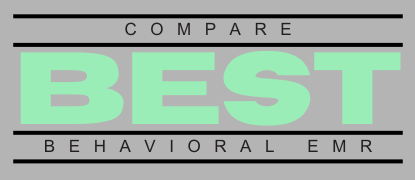Managing a behavioral health practice is rewarding, but it’s not without challenges. Among these, selecting and maintaining the right behavioral health EMR system is crucial. Your EMR (Electronic Medical Record), also referred to as an EHR (Electronic Health Record), plays a significant role in patient care, compliance, and operational efficiency. If you’re experiencing frustration or noticing inefficiencies, it might be time for a change. This article will explore common warning signs indicating your practice may benefit from upgrading your current EMR system.
Why Your Behavioral Health EMR Matters
Your EMR is not just a digital filing cabinet; it’s the backbone of your practice. A reliable behavioral health EMR should streamline documentation, ensure regulatory compliance, facilitate smooth patient interactions, and simplify billing processes. However, when your EMR system falls short, it can negatively impact patient outcomes and operational efficiency. Let’s explore some of the indicators that signal it’s time to reconsider your EMR solution.
5 Signs Your Practice Needs a New Behavioral Health EMR System
1. Documentation Feels Like a Never-Ending Chore
Documentation is essential for compliance and quality patient care. However, if your clinicians constantly complain that documentation takes too long or is overly complicated, your current EMR may be hindering rather than helping. A good EMR should:
- Offer intuitive templates specifically designed for behavioral health practices.
- Streamline note-taking and reduce repetitive tasks.
- Allow easy customization to suit your practice’s unique workflow.
If your current documentation process is cumbersome, it could be impacting clinician satisfaction and patient care quality. It might be time to explore better options.
2. Frequent Downtime and Technical Issues
EMR downtime can disrupt your entire practice, delaying patient care, causing billing errors, and frustrating staff. Occasional technical glitches are normal, but frequent issues indicate deeper problems. Consider a new behavioral health EMR system if you’re experiencing:
- Frequent crashes or slowdowns.
- Difficulty accessing patient records when needed.
- Repeated unresolved technical issues even after contacting support.
Reliable EMR systems offer robust support, regular updates, and consistent uptime, ensuring your practice operates smoothly without unnecessary interruptions.
3. Poor Integration with Other Software and Tools
Behavioral health practices often utilize multiple tools and platforms, including telehealth software, billing solutions, scheduling tools, and CRM platforms. If your EMR doesn’t integrate seamlessly with other essential software, your team might be stuck manually transferring data, leading to errors and inefficiencies. Look for a behavioral health EMR system that offers:
- Easy integration with telehealth platforms.
- Automatic synchronization with billing and scheduling software.
- Compatibility with CRM tools for patient relationship management.
Effective integration saves time, reduces human error, and helps your team focus more on patient care and less on administrative tasks.
4. Difficulty Meeting Compliance Requirements
Behavioral health practices face significant regulatory obligations, including HIPAA compliance, state and federal documentation standards, and insurance requirements. A high-quality EMR should simplify compliance by:
- Providing built-in compliance checks and reminders.
- Automatically updating to stay current with regulations.
- Offering secure data storage and audit-friendly documentation.
If your current EMR makes compliance challenging or leaves your practice vulnerable to audit risks, it’s a clear sign to consider upgrading.
5. Limited Reporting and Analytics Capabilities
Data-driven insights empower behavioral health practices to improve patient outcomes, optimize workflows, and make informed operational decisions. If your current EMR lacks robust analytics and reporting tools, you’re missing essential insights. A strong behavioral health EMR provides:
- Customizable reporting templates tailored for behavioral health metrics.
- Real-time dashboards to monitor patient outcomes and practice performance.
- Data export options for deeper analysis and decision-making.
Enhanced reporting capabilities are crucial for continuous improvement and long-term practice growth.
How to Choose the Right Behavioral Health EMR for Your Practice
Recognizing your current EMR’s limitations is the first step. Next, you must identify a solution tailored to your practice’s unique needs. When selecting a new behavioral health EMR, consider the following:
- User-Friendliness: Ensure the EMR is intuitive and easy to learn for your entire staff.
- Customization: Look for solutions that adapt to your specific workflows and clinical needs.
- Support and Training: Verify the availability and quality of customer support and ongoing training resources.
- Cost and Scalability: Choose an EMR that fits your budget now and can scale with your practice’s growth.
For additional guidance, consider leveraging our free practice analysis. Our experts will evaluate your practice’s requirements and help you identify the EMR solutions best suited for your unique goals and challenges.
Conclusion: Upgrading Your Behavioral Health EMR System is Worth the Effort
Your behavioral health EMR system significantly impacts your practice’s efficiency, compliance, and patient care quality. If you recognize any of the warning signs above, investing in a new, tailored EMR solution can lead to substantial improvements. Don’t wait until minor frustrations become major operational issues. Take action today and explore options that better fit your practice’s needs. Start your journey by completing our free practice analysis and let our experts guide you toward the ideal behavioral health EMR solution.
